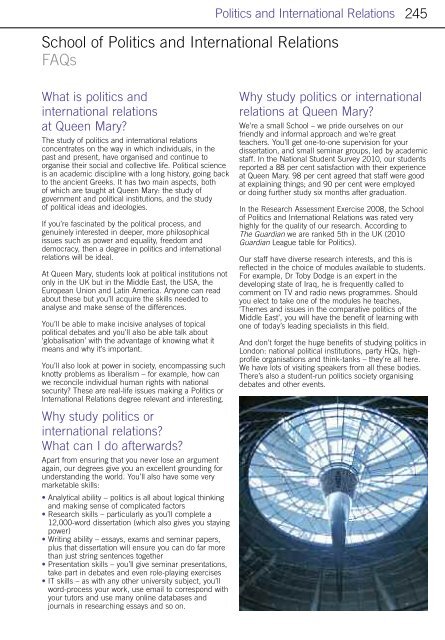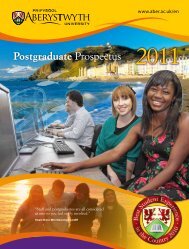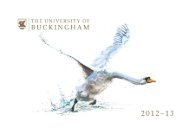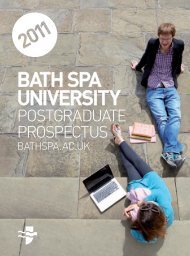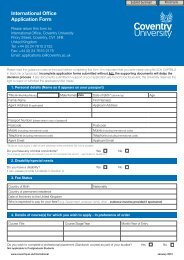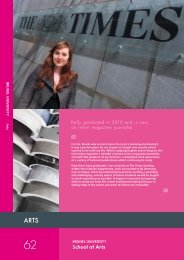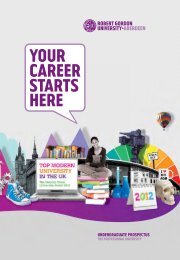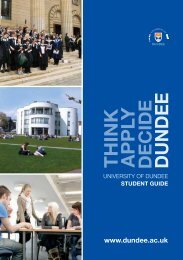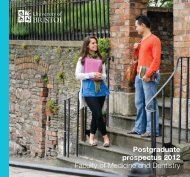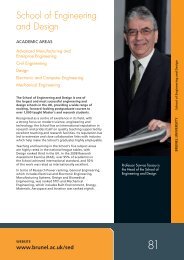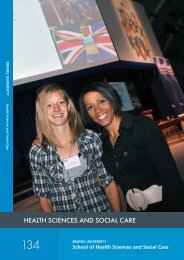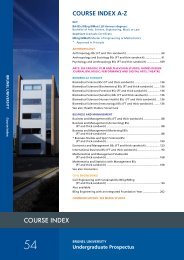student profile
student profile
student profile
You also want an ePaper? Increase the reach of your titles
YUMPU automatically turns print PDFs into web optimized ePapers that Google loves.
Politics and International Relations 245<br />
School of Politics and International Relations<br />
FAQs<br />
What is politics and<br />
international relations<br />
at Queen Mary<br />
The study of politics and international relations<br />
concentrates on the way in which individuals, in the<br />
past and present, have organised and continue to<br />
organise their social and collective life. Political science<br />
is an academic discipline with a long history, going back<br />
to the ancient Greeks. It has two main aspects, both<br />
of which are taught at Queen Mary: the study of<br />
government and political institutions, and the study<br />
of political ideas and ideologies.<br />
If you’re fascinated by the political process, and<br />
genuinely interested in deeper, more philosophical<br />
issues such as power and equality, freedom and<br />
democracy, then a degree in politics and international<br />
relations will be ideal.<br />
At Queen Mary, <strong>student</strong>s look at political institutions not<br />
only in the UK but in the Middle East, the USA, the<br />
European Union and Latin America. Anyone can read<br />
about these but you’ll acquire the skills needed to<br />
analyse and make sense of the differences.<br />
You’ll be able to make incisive analyses of topical<br />
political debates and you’ll also be able talk about<br />
‘globalisation’ with the advantage of knowing what it<br />
means and why it’s important.<br />
You’ll also look at power in society, encompassing such<br />
knotty problems as liberalism – for example, how can<br />
we reconcile individual human rights with national<br />
security These are real-life issues making a Politics or<br />
International Relations degree relevant and interesting.<br />
Why study politics or<br />
international relations<br />
What can I do afterwards<br />
Apart from ensuring that you never lose an argument<br />
again, our degrees give you an excellent grounding for<br />
understanding the world. You’ll also have some very<br />
marketable skills:<br />
• Analytical ability – politics is all about logical thinking<br />
and making sense of complicated factors<br />
• Research skills – particularly as you’ll complete a<br />
12,000-word dissertation (which also gives you staying<br />
power)<br />
• Writing ability – essays, exams and seminar papers,<br />
plus that dissertation will ensure you can do far more<br />
than just string sentences together<br />
• Presentation skills – you’ll give seminar presentations,<br />
take part in debates and even role-playing exercises<br />
• IT skills – as with any other university subject, you’ll<br />
word-process your work, use email to correspond with<br />
your tutors and use many online databases and<br />
journals in researching essays and so on.<br />
Why study politics or international<br />
relations at Queen Mary<br />
We’re a small School – we pride ourselves on our<br />
friendly and informal approach and we’re great<br />
teachers. You’ll get one-to-one supervision for your<br />
dissertation, and small seminar groups, led by academic<br />
staff. In the National Student Survey 2010, our <strong>student</strong>s<br />
reported a 88 per cent satisfaction with their experience<br />
at Queen Mary. 98 per cent agreed that staff were good<br />
at explaining things; and 90 per cent were employed<br />
or doing further study six months after graduation.<br />
In the Research Assessment Exercise 2008, the School<br />
of Politics and International Relations was rated very<br />
highly for the quality of our research. According to<br />
The Guardian we are ranked 5th in the UK (2010<br />
Guardian League table for Politics).<br />
Our staff have diverse research interests, and this is<br />
reflected in the choice of modules available to <strong>student</strong>s.<br />
For example, Dr Toby Dodge is an expert in the<br />
developing state of Iraq, he is frequently called to<br />
comment on TV and radio news programmes. Should<br />
you elect to take one of the modules he teaches,<br />
‘Themes and issues in the comparative politics of the<br />
Middle East’, you will have the benefit of learning with<br />
one of today’s leading specialists in this field.<br />
And don’t forget the huge benefits of studying politics in<br />
London: national political institutions, party HQs, high<strong>profile</strong><br />
organisations and think-tanks – they’re all here.<br />
We have lots of visiting speakers from all these bodies.<br />
There’s also a <strong>student</strong>-run politics society organising<br />
debates and other events.


